We are pleased to announce that we have 3 papers accepted to The Sixth Arabic Natural Language Processing Workshop (WANLP 2021) co-located with EACL 2021. Authored by our talented team members: Tarek Naous, Wissam Antoun, Reem Mahmoud, Fady Baly under the supervision of Prof. Hazem Hajj. The papers target Arabic empathetic conversational agents, generative language models, and language understanding models.
Empathetic BERT2BERT Conversational Model:
Learning Arabic Language Generation with Little Data
Our latest contribution to Arabic Conversational AI leverages knowledge transfer from AraBERT in a BERT2BERT architecture. We address the low resource challenges and achieve sota results in open domain empathetic response generation.
Paper: https://arxiv.org/abs/2103.04353
Abstract: Enabling empathetic behavior in Arabic dialogue agents is an important aspect of building human-like conversational models. While Arabic Natural Language Processing has seen significant advances in Natural Language Understanding (NLU) with language models such as AraBERT, Natural Language Generation (NLG) remains a challenge. The shortcomings of NLG encoder-decoder models are primarily due to the lack of Arabic datasets suitable to train NLG models such as conversational agents. To overcome this issue, we propose a transformer-based encoder-decoder initialized with AraBERT parameters. By initializing the weights of the encoder and decoder with AraBERT pre-trained weights, our model was able to leverage knowledge transfer and boost performance in response generation. To enable empathy in our conversational model, we train it using the ArabicEmpatheticDialogues dataset and achieve high performance in empathetic response generation. Specifically, our model achieved a low perplexity value of 17.0 and an increase in 5 BLEU points compared to the previous state-of-the-art model. Also, our proposed model was rated highly by 85 human evaluators, validating its high capability in exhibiting empathy while generating relevant and fluent responses in open-domain settings.
AraGPT2:
Pre-Trained Transformer for Arabic Language Generation
AraGPT2 is a 1.5B transformer model, the largest for Arabic, trained on 77GB of text for 9 days with a TPUv3-128. The model can generate news articles that are difficult to distinguish from human-written articles. AraGPT2 shows impressive Zero-shot performance on trivia QA.
Paper: arxiv.org/abs/2012.15520
GitHub: https://github.com/aub-mind/arabert/tree/master/aragpt2
Abstract: Recently, pre-trained transformer-based architectures have proven to be very efficient at language modeling and understanding, given that they are trained on a large enough corpus. Applications in language generation for Arabic are still lagging in comparison to other NLP advances primarily due to the lack of advanced Arabic language generation models. In this paper, we develop the first advanced Arabic language generation model, AraGPT2, trained from scratch on a large Arabic corpus of internet text and news articles. Our largest model, AraGPT2-mega, has 1.46 billion parameters, which makes it the largest Arabic language model available. The Mega model was evaluated and showed success on different tasks including synthetic news generation, and zero-shot question answering. For text generation, our best model achieves a perplexity of 29.8 on held-out Wikipedia articles. A study conducted with human evaluators showed the significant success of AraGPT2-mega in generating news articles that are difficult to distinguish from articles written by humans. We thus develop and release an automatic discriminator model with a 98% percent accuracy in detecting model-generated text. The models are also publicly available, hoping to encourage new research directions and applications for Arabic NLP.
AraELECTRA:
Pre-Training Text Discriminators for Arabic Language Understanding
AraELECTRA is our latest advancements in Arabic Language Understanding. The model was trained on 77GB of Arabic text for 24 days. AraELECTRA achieves impressive performance, especially on Question Answering tasks.
Paper: https://arxiv.org/abs/2012.15516
Github: https://github.com/aub-mind/arabert/tree/master/araelectra
Abstract: Advances in English language representation enabled a more sample-efficient pre-training task by Efficiently Learning an Encoder that Classifies Token Replacements Accurately (ELECTRA). Which, instead of training a model to recover masked tokens, it trains a discriminator model to distinguish true input tokens from corrupted tokens that were replaced by a generator network. On the other hand, current Arabic language representation approaches rely only on pretraining via masked language modeling. In this paper, we develop an Arabic language representation model, which we name AraELECTRA. Our model is pretrained using the replaced token detection objective on large Arabic text corpora. We evaluate our model on multiple Arabic NLP tasks, including reading comprehension, sentiment analysis, and named-entity recognition and we show that AraELECTRA outperforms current state-of-the-art Arabic language representation models, given the same pretraining data and with even a smaller model size.
Acknowledgments:
This research was supported by the University Research Board (URB) at the American University of Beirut (AUB), and by the TFRC program, which we thank for the free access to cloud TPUs. We also thank As-Safir newspaper for the data access.

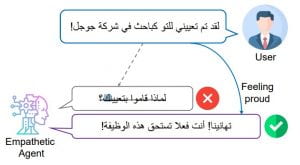
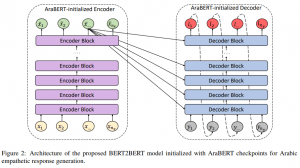


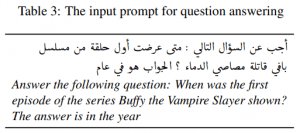
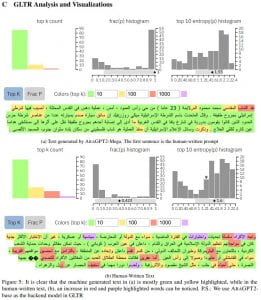
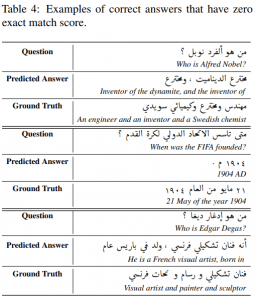
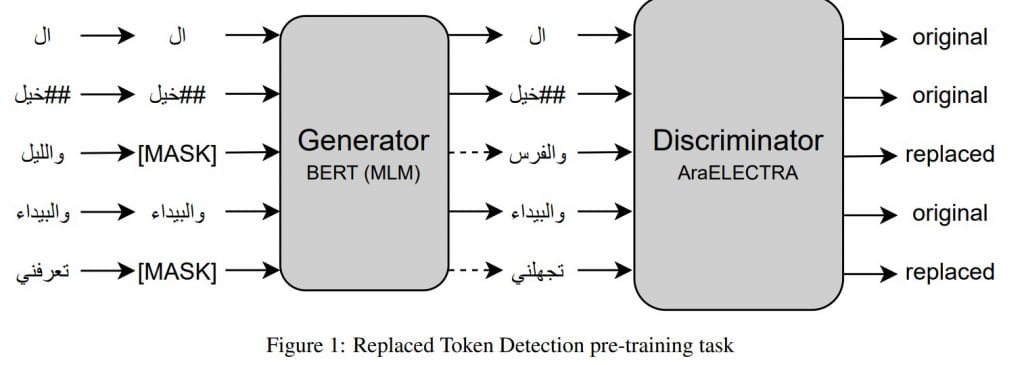
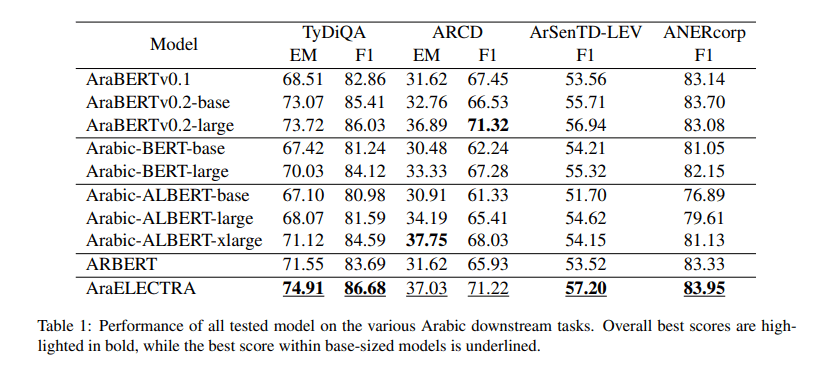
Recent Comments